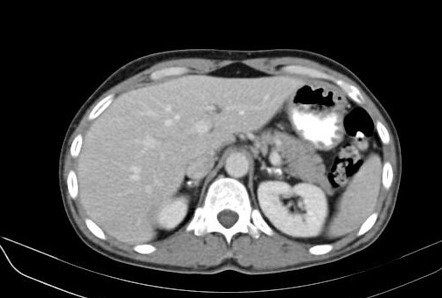Adrenal Insufficiency
Content of This Page
1- Introduction
2- Causes
3- Symptoms
4- Stages of The Disease
5- Treatment
6- What Should You Avoid
Introduction
Adrenal insufficiency is a condition in which the adrenal glands, located on top of the kidneys, do not produce enough of certain essential hormones, particularly cortisol and, sometimes, aldosterone. Cortisol helps regulate metabolism, blood pressure, and the body’s response to stress, while aldosterone balances sodium and potassium levels.
The condition can be classified as:
- Primary Adrenal Insufficiency (Addison’s Disease): This occurs when the adrenal glands themselves are damaged and unable to produce sufficient hormones.
- Secondary Adrenal Insufficiency: This happens when the pituitary gland, which controls the adrenal glands, does not produce enough adrenocorticotropic hormone (ACTH) to stimulate the adrenal glands.

Causes
1. Primary Adrenal Insufficiency (Addison’s Disease):
- Autoimmune Destruction: The most common cause, where the body’s immune system mistakenly attacks and damages the adrenal glands, leading to decreased hormone production.
- Infections: Certain infections, such as tuberculosis, HIV, or fungal infections, can damage the adrenal glands.
- Adrenal Gland Tumors: Rarely, tumors or metastases to the adrenal glands can cause adrenal insufficiency.
- Genetic Disorders: Some genetic conditions, such as congenital adrenal hyperplasia, can impair the adrenal glands’ ability to produce hormones.
- Adrenal Hemorrhage or Infarction: Severe bleeding within the adrenal glands or loss of blood supply can result in sudden adrenal insufficiency.
- Medications: Certain drugs, such as antifungal medications like ketoconazole, can inhibit cortisol production.
2. Secondary Adrenal Insufficiency:
- Pituitary Gland Dysfunction: Damage to the pituitary gland due to tumors, surgery, radiation, or injury can reduce the production of adrenocorticotropic hormone (ACTH), which is needed to stimulate the adrenal glands.
- Long-Term Use of Corticosteroids: Prolonged use of corticosteroid medications (like prednisone) for chronic conditions can suppress ACTH production. If these medications are suddenly stopped, the adrenal glands may not be able to resume normal cortisol production immediately.
- Hypothalamic Disorders: Problems in the hypothalamus, the part of the brain that controls the pituitary gland, can also lead to secondary adrenal insufficiency.

Symptoms
1. Fatigue and Weakness:
- Persistent tiredness and muscle weakness, often worsening over time.
2. Weight Loss and Decreased Appetite:
- Unintentional weight loss and a reduced appetite are common, particularly in primary adrenal insufficiency.
3. Low Blood Pressure:
- Hypotension, especially upon standing (orthostatic hypotension), which can lead to dizziness or fainting.
4. Hyperpigmentation (Darkening of the Skin):
- Darkening of the skin, particularly in areas exposed to the sun, as well as in skin folds, scars, and the gums. This is more common in primary adrenal insufficiency (Addison’s disease).
5. Salt Cravings:
- A strong desire for salty foods, particularly in primary adrenal insufficiency, due to low aldosterone levels affecting sodium balance.
6. Abdominal Pain:
- General discomfort or pain in the abdomen, sometimes accompanied by nausea, vomiting, or diarrhea.
7. Low Blood Sugar (Hypoglycemia):
- Episodes of low blood sugar, especially in children, leading to symptoms like shakiness, sweating, confusion, or irritability.
8. Mood Changes:
- Depression, irritability, or a general feeling of being unwell (malaise).
9. Joint and Muscle Pain:
- Aching joints and muscles, often coupled with overall weakness.
10. Loss of Body Hair:
- In women, there may be a loss of pubic and underarm hair due to decreased androgen production.
11. Menstrual Irregularities:
- In women, adrenal insufficiency can lead to irregular or missed menstrual periods.
12. Acute Adrenal Crisis (in severe cases):
- This is a life-threatening emergency characterized by sudden severe symptoms, including severe weakness, confusion, pain in the lower back or legs, vomiting, diarrhea, and loss of consciousness. An adrenal crisis requires immediate medical attention.

Stages of The Disease
1. Early or Mild Stage:
- Symptoms: Subtle and non-specific symptoms like fatigue, muscle weakness, and mild weight loss may begin to appear. These symptoms are often mistaken for other conditions or general fatigue.
- Diagnosis: At this stage, adrenal insufficiency is often not recognized, as the symptoms are vague and not severe.
2. Moderate Stage:
- Symptoms: Symptoms become more pronounced and consistent. These may include significant fatigue, muscle weakness, noticeable weight loss, low blood pressure (especially orthostatic hypotension), salt cravings, and hyperpigmentation (in primary adrenal insufficiency).
- Impact on Daily Life: The symptoms begin to interfere with daily activities, and the person may seek medical help. At this point, a diagnosis is more likely to be made through blood tests and hormone level assessments.
3. Advanced or Severe Stage:
- Symptoms: Severe symptoms appear, including significant weight loss, very low blood pressure, severe fatigue, abdominal pain, nausea, vomiting, and confusion. Blood sugar levels may drop, leading to hypoglycemia, and electrolyte imbalances may occur, particularly low sodium and high potassium levels (in primary adrenal insufficiency).
- Complications: Without treatment, the risk of an adrenal crisis increases. An adrenal crisis is a medical emergency that can occur suddenly and requires immediate treatment to prevent life-threatening consequences.
4. Adrenal Crisis (Acute Stage):
- Symptoms: Sudden onset of severe symptoms, including intense pain (often in the lower back, abdomen, or legs), severe vomiting and diarrhea, dehydration, extremely low blood pressure, shock, and loss of consciousness.
- Treatment: Immediate medical intervention with high doses of intravenous corticosteroids and fluids is required to manage the crisis and stabilize the patient. Without prompt treatment, an adrenal crisis can be fatal.
5. Chronic Management:
- Long-Term Management: Once diagnosed, lifelong hormone replacement therapy is required to manage the condition. Regular monitoring and adjustments in medication are necessary, especially during times of stress, illness, or surgery, to prevent an adrenal crisis.
Treatment
1. Hormone Replacement Therapy:
- Cortisol Replacement: The primary treatment involves replacing cortisol with oral corticosteroids. Common medications include:
- Hydrocortisone: Often used as the first-line treatment.
- Prednisone: Another option, sometimes used based on individual needs.
- Adjustments: Dosages may need to be adjusted based on factors like stress, illness, or physical activity. Higher doses may be required during times of acute stress or illness to mimic the body’s natural stress response.
2. Aldosterone Replacement (for primary adrenal insufficiency):
- Fludrocortisone: This medication is used to replace aldosterone, which helps regulate sodium and potassium levels and maintain blood pressure. It is generally used in primary adrenal insufficiency (Addison’s disease) where aldosterone production is impaired.
3. Management of Other Conditions:
- Addressing Underlying Causes: If adrenal insufficiency is secondary to another condition (e.g., pituitary tumor), treating the underlying cause is crucial.
4. Emergency Preparedness:
- Emergency Injection: People with adrenal insufficiency should carry an emergency injection kit containing hydrocortisone (or another corticosteroid) to self-administer during an adrenal crisis or when unable to take oral medication.
- Medical Alert: Wearing a medical alert bracelet or necklace that indicates adrenal insufficiency can help ensure prompt treatment in emergencies.
5. Monitoring and Adjustments:
- Regular Check-Ups: Ongoing monitoring by a healthcare provider is essential to adjust medication dosages and check for side effects.
- Blood Tests: Regular blood tests to monitor hormone levels, electrolytes, and overall health are important to ensure proper management.
6. Lifestyle and Dietary Adjustments:
- Balanced Diet: Maintaining a healthy diet, especially one that helps manage blood pressure and electrolyte balance, is important.
- Stress Management: Learning stress-reduction techniques and managing stress effectively can help prevent exacerbation of symptoms.
7. Education and Support:
- Patient Education: Educating patients about their condition, medication management, and recognizing symptoms of an adrenal crisis is crucial for effective self-care.
- Support Groups: Joining support groups or counseling can provide emotional support and practical advice for managing the condition.
What Should You Avoid
1. Skipping Medication:
- Avoid Missed Doses: It’s crucial to take prescribed medications exactly as directed. Missing doses or abruptly stopping medications can lead to an adrenal crisis.
2. Self-Medicating or Changing Doses Without Guidance:
- Consult Your Doctor: Never adjust your medication dosage or start new treatments without consulting your healthcare provider, as this can disrupt your hormone balance.
3. Extreme Physical Stress:
- Avoid Overexertion: Excessive physical stress or overexertion can trigger symptoms or an adrenal crisis. Balance your activity levels and take breaks as needed.
4. Stressful Situations Without Preparation:
- Manage Stress: Plan for and manage stressful situations carefully. Increase your medication dosage if advised by your doctor during periods of increased stress, illness, or surgery.
5. Inadequate Hydration:
- Stay Hydrated: Dehydration can exacerbate symptoms. Drink plenty of fluids, especially during illness or hot weather.
6. Uncontrolled Infections or Illnesses:
- Seek Prompt Care: Address infections or illnesses promptly with medical treatment, as they can stress the body and exacerbate adrenal insufficiency.
7. Certain Medications:
- Avoid Certain Drugs: Some medications can interfere with adrenal function or hormone replacement therapy. Inform your doctor about all medications you are taking, including over-the-counter and herbal supplements.
8. Alcohol and Caffeine:
- Limit Intake: Excessive alcohol and caffeine can affect your overall health and well-being. Moderation is key, and you should consult your healthcare provider about safe levels of consumption.
9. Salt and Potassium Imbalance:
- Maintain Balance: For those with primary adrenal insufficiency, avoiding excessive salt or potassium intake is important. Follow your doctor’s recommendations for managing electrolyte balance.
10. Ignoring Symptoms:
- Monitor Symptoms: Pay attention to any changes in symptoms and report them to your healthcare provider. Early intervention can prevent complications.
11. Lack of Emergency Preparedness:
- Carry an Emergency Kit: Always have an emergency injection kit with you and ensure those around you know how to use it if needed.